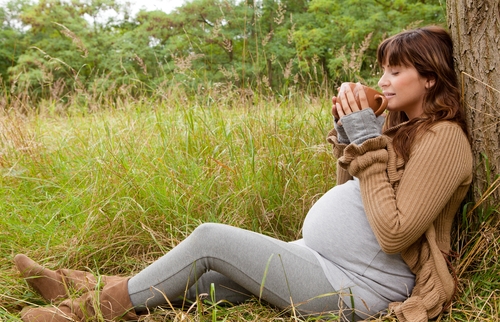Many of us can’t imagine starting the day without at least one cup of coffee. That first sip is the catalyst to a good day. It wakes you up. There’s just nothing like a good cup of coffee first thing in the morning. Of course, the only issue with caffeine is that it’s not entirely healthy, especially for breast-feeding mothers.
Health effects of caffeine on the average adult
There’s nothing wrong with a few cups of coffee to wake you up and get you going in the morning. There are no adverse health effects associated with coffee drinking or other caffeine consumption as long as you keep your daily intake under 300 milligrams.
Four or fewer cups of coffee each day isn’t harmful to adults who are not pregnant or breast-feeding. More than four cups, however, can increase insomnia, irritability, and restlessness. Additionally, those who do not drink coffee on a regular basis might find they are more likely to suffer these side effects after just one cup.
Caffeine and the expectant mother
With pregnancy comes a list of food and beverage items women have to avoid for a full nine months. For the safety of your health and your baby’s well-being, caffeine is one of those items to avoid. While it’s best to switch to decaf coffee in the mornings, keeping your caffeine intake to less than 200 milligrams per day shouldn’t be harmful.
Caffeine and the breast-feeding mom
You’ve given birth: congratulations. Now you can have that glass of wine, that cup of coffee, and a big plate of sushi again, right? Wrong. If you plan on breast feeding or you are already breastfeeding, you still have to watch your caffeine intake.
A little less than one percent of the caffeine you ingest while nursing enters your milk supply. Your baby’s body is not strong enough or sufficiently well equipped to break down caffeine, which means it will just sit in his little body.
How much coffee is safe for a nursing mom?
With a baby who does not sleep through the night just yet, it’s common for breast-feeding moms to want and need coffee in the morning to wake up. However, if you want to prevent the caffeine from building up inside your baby, you should keep your intake to less than 300 milligrams, or two cups, each day.
As your baby gets older, his body becomes capable of processing and secreting caffeine. Around the three-month mark, it’s possible you can have an extra cup of coffee each day to keep you going without fear that your baby will suffer negative side effects.
Some babies just can’t handle it
All babies are different, though. Your baby might not be as tolerant of caffeine as another, such as one of your older children. Even keeping your caffeine intake to a minimum while nursing, you might find you have to give up coffee altogether because it gives your baby gas or tummy problems.
No two adults, pregnancies, or babies are the same. One may handle excessive caffeine without any negative side effects while another might not be able to handle even one cup. By considering your own health and knowing your body, you can determine how much coffee is good for you.
As for your baby, it’s always better to be safe than sorry. Giving up caffeine might not be easy if you decide to take that route, but you’ll be proud of yourself for putting your baby’s health before your own desires.
Originally posted on August 21, 2013 @ 11:40 am
